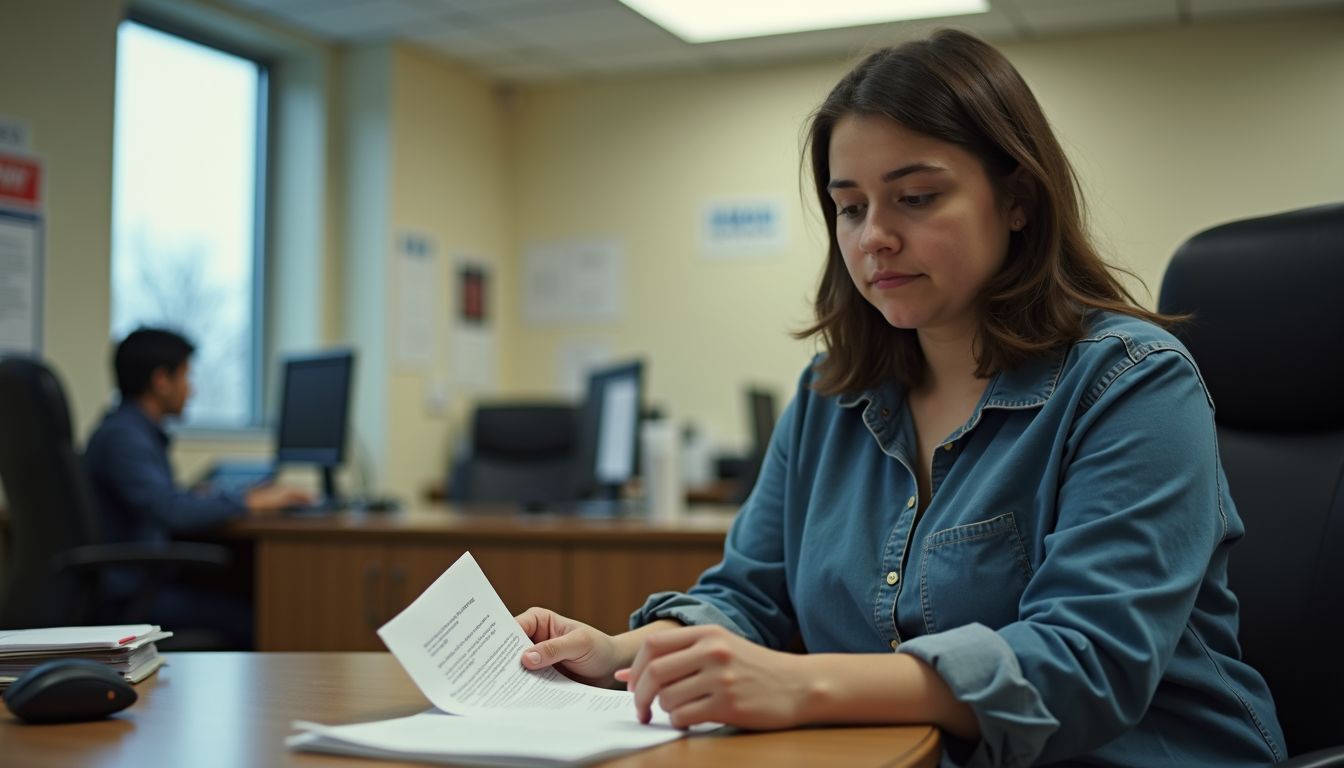Sick Notes For Post-Surgery Recovery In University Students
Recovering from surgery while at uni can be tough. Students often need sick notes to explain their absence. These notes help keep things fair for everyone. This post will show you how to get a sick note after surgery.
Read on to make your recovery easier.
Understanding the Importance of Sick Notes in Post-Surgery Recovery

Sick notes play a key role in post-surgery recovery for uni students. These notes help keep things fair and honest in school. They give a real reason why a student missed class or work after an operation.
Most unis let students fill out their own forms for short illnesses. But for longer times off, like after surgery, a doctor’s note is often needed. This helps staff know how long a student might be away and what help they may need when they come back.
Sick notes also help students with long-term health issues. These students may find it hard to see a doctor quickly for a note. That’s why some schools let students use self-cert forms from the Health Centre.
These forms let students explain their own illness. This can be very helpful after surgery when rest is key. The next part will look at how to get these notes from uni health services.
Procedures for Obtaining Sick Notes from University Health Services
Getting a sick note from your uni health service is easy. You can often do it online or by phone. This saves time and helps you rest after surgery.
Self-certification for short-term absence
Self-certification is a handy tool for uni students who need a short break. It’s for times when you’re ill for five days or less. You don’t need to see a doctor for this. Just fill out a form at your uni’s Health Centre.
This form is your personal sick note. It tells your tutors why you missed class or work.
Most unis let students self-certify for brief illnesses. It’s a quick way to explain your absence. But each school has its own rules. Make sure you know what your uni wants. For longer absences or after surgery, you might need a doctor’s note.
Always check your school’s sickness policy to be sure.
How to secure a medical certificate for extended absences
For longer absences, students need a health certificate. This process differs from self-certification. Here’s how to obtain a health certificate for extended absences:
- Contact your GP or hospital doctor. Book an appointment to discuss your post-surgery recovery.
- Explain your situation to the doctor. Tell them about your surgery and recovery needs.
- Ask for a fit note (MED3). This form shows if you’re fit for work or study.
- Provide details about your course. The doctor needs to know how your recovery affects your studies.
- Get a clear, legible note. Make sure it includes your surgery date and expected recovery time.
- Submit the note to your university. Follow your school’s rules for handing in health documents.
- Keep a copy for your records. You might need it later for missed work or exams.
- Check if you need more proof. Some schools may ask for extra info from your healthcare team.
- Talk to your tutors about catch-up work. Plan how to manage your studies during recovery.
- Look into online learning options. This can help you keep up while you heal at home.
Responsibilities of Students and University Staff in Managing Post-Surgery Recovery
Students and staff both play key roles in post-surgery recovery. Students must tell their tutors about their surgery and get sick notes. They should also ask for help with missed work.
Staff need to be kind and offer support. They should give students extra time for tasks if needed. Clear talks between students and staff are vital.
Unis have rules for sick leave. Students can often self-certify for short times off. For longer breaks, they may need a doctor’s note. Staff should know these rules and help students follow them.
They can guide students to the right places for help. This might include the health centre or student services.
How to Secure a Sick Note from Your University for Post-Surgery Recovery
Getting a sick note after surgery is vital for university students. Here’s how to secure one from your university:
- Check your uni’s policy. Each school has its own rules for sick notes.
- Self-certify for short absences. Fill out a form if you’re away for five days or less.
- Visit the health centre. Go there for longer absences or post-surgery recovery.
- Bring your surgery details. Have clear notes about your operation ready.
- Talk to a healthcare pro. A doctor or nurse can write your sick note.
- Ask for a fit note. This shows if you can do some work or need time off.
- Get help for chronic illness. Speak to staff if you have ongoing health issues.
- Use online services. Some unis let you request sick notes through their website.
- Keep records safe. Store your sick note in a secure place for future use.
- Tell your tutors. Let them know about your surgery and recovery time.
Next, we’ll look at the duties of students and uni staff in managing post-surgery recovery.
Conclusion
Sick notes play a key role in helping students recover after surgery. They give proof of absence and help students get support. Each school has its own rules for sick notes. Students should learn these rules before they need them.
With the right steps, students can focus on healing and return to class when ready.
FAQs
1. How do I get a sick note after surgery?
Ask your GP or the hospital for a note. They can give you one for your school. This helps if you need time off to get better.
2. Can I take online classes during recovery?
Yes, you can. Talk to your school about online classes. They may help you keep up with your studies while you heal at home.
3. What if I have mental health issues after my surgery?
Tell your doctor or nurse. They can help you. There are also groups like Samaritans who can listen to your fears and worries.
4. Do I need to tell my school about my surgery?
It’s a good idea to let them know. They can help you with your studies. They may also offer support for people with health needs.
5. Can I get help with my school work if I’m still not well?
Yes, you can. Ask about help for students with health issues. Your school may have special tools or extra time for tests.
6. What if I need more time to recover than I thought?
Talk to your doctor and your school. They can work together to make a plan. This may include more time off or special help in class.

